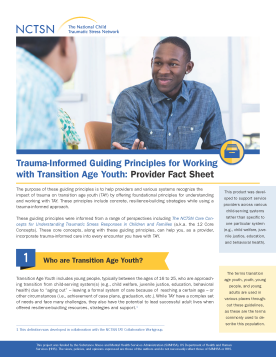
Trauma-Informed Guiding Principles for Working with Transition Age Youth: Provider Fact Sheet
Offers information for providers supporting transition age youth with trauma-informed guiding principles to inform their work.
The following resources on Child Welfare were developed by the NCTSN.

Offers information for providers supporting transition age youth with trauma-informed guiding principles to inform their work.
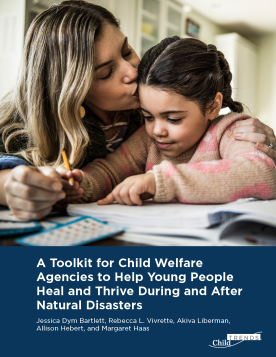
Helps child welfare agencies support children and youth during and after natural disasters. This toolkit is for child welfare staff, supervisors, and administrators who work with and on behalf of children, youth, and families who experience a natural disaster.
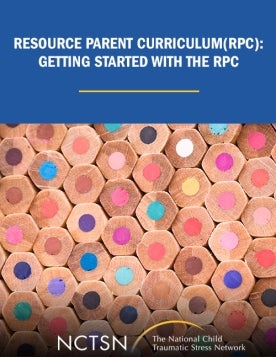
Features Jared Martin, a Research Associate with the Chadwick Center for Children and Families at Rady Children’s Hospital-San Diego, describing the use of implementation science to accomplish the goal of sustainability in conversation with Lorena Avitea, LCSW, a Trauma Informed Systems Specialis
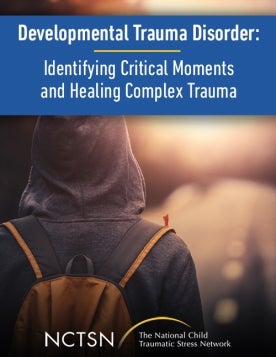
Features Mr. Smith, a 27-year-old single father who works full-time as a health worker. He and his fiancé would like full custody of his 7-year-old son, Samuel.
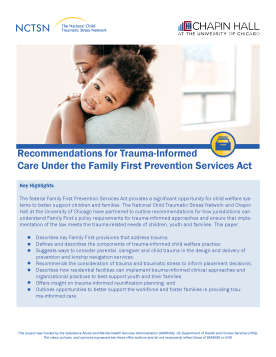
Outlines recommendations for how jurisdictions can understand Family First’s policy requirements for trauma-informed approaches and ensure that implementation of the law meets the trauma-related needs of children, youth and families.
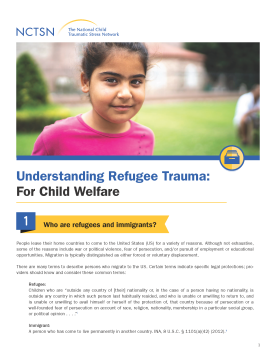
Provides information about refugee trauma for those working in or with the child welfare system.
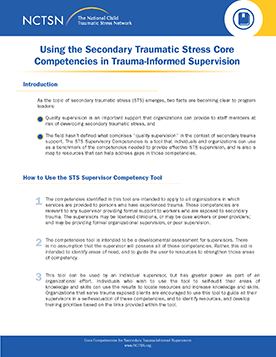
Discusses the importance of quality supervision that organizations can provide to staff members at risk for secondary traumatic stress (STS).
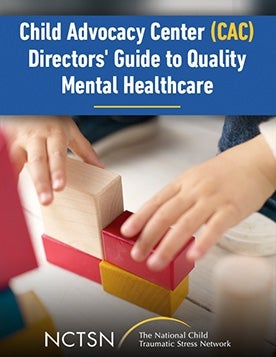
Helps Children’s Advocacy Center (CAC) directors deliver the highest quality care to children and families.
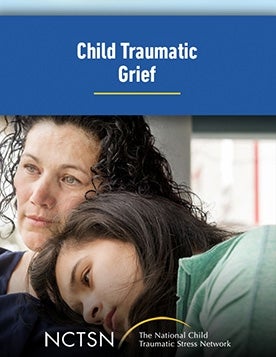
Describes the impact of traumatic separation, attachment, and attachment disruption on children and adolescents.
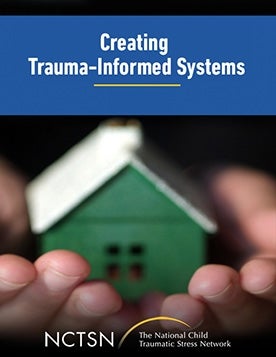
Describes how the film Removed gives foster parents a vivid picture of what it must be like for children entering the foster care system. This webinar provides information about how to use the video to facilitate a conversation about being removed from one's home.
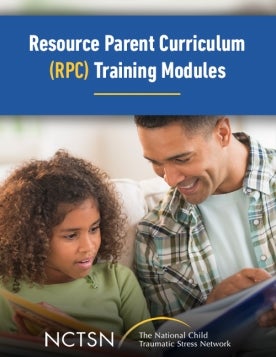
Complements the Resource Parent Curriculum (RPC). This course is for resource families who are considering attending a RPC training to help them determine whether it would be worth their time to attend an entire workshop.
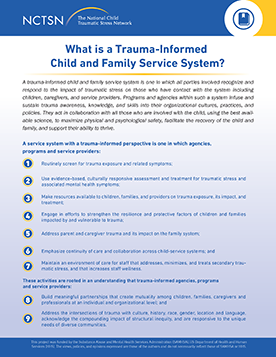
Answers the question what is a trauma-informed child and family service system. This fact sheet details the components of a trauma-informed child and family service system.